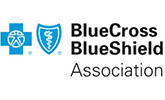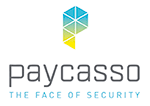Medical identity theft is a billion-dollar “industry” that hits a lot closer to home than you think.
It generally involves fraudulent use of personal information (name, Social Security number, insurance information) for the purposes of obtaining medical services or devices, to collect insurance reimbursements or to get prescriptions illegally. But the motivation and method of exploitation of your information varies depending on the criminal, making it hard to concisely define.
In some cases, the perpetrator racks up large bills, leaving the victim responsible for payment. In other cases, international criminals used patient data to obtain fraudulent reimbursements through fake medical offices.
Overall, it’s increasingly common. A Kaiser Permanente study found there were nearly 1,000 large health data breaches between 2010 and 2013 that affected more than 29 million records, including those of many Texans. Medical data now is fetching more on the criminal market than credit card information, but a surprising number of thefts was related to just obtaining medical care.
On a more basic level, if you go to the hospital and have insurance information, but don’t have your ID, the hospital is more focused on providing care — that’s their mission. If a confident criminal has your insurance information but not your ID, they might get past a busy gatekeeper and get free medical care.
Click here to read the full article.
August 19, 2015 by K. Andy Tiwari, San Antonio Express-News






























